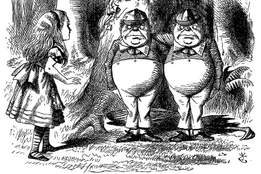transitive
adjective
tran·si·tive
ˈtran(t)-sə-tiv 

ˈtran-zə-;
ˈtran(t)s-tiv
1
: characterized by having or containing a direct object
a transitive verb
2
: being or relating to a relation with the property that if the relation holds between a first element and a second and between the second element and a third, it holds between the first and third elements
equality is a transitive relation
3
: of, relating to, or characterized by transition
Love words? Need even more definitions?
Merriam-Webster unabridged









Share